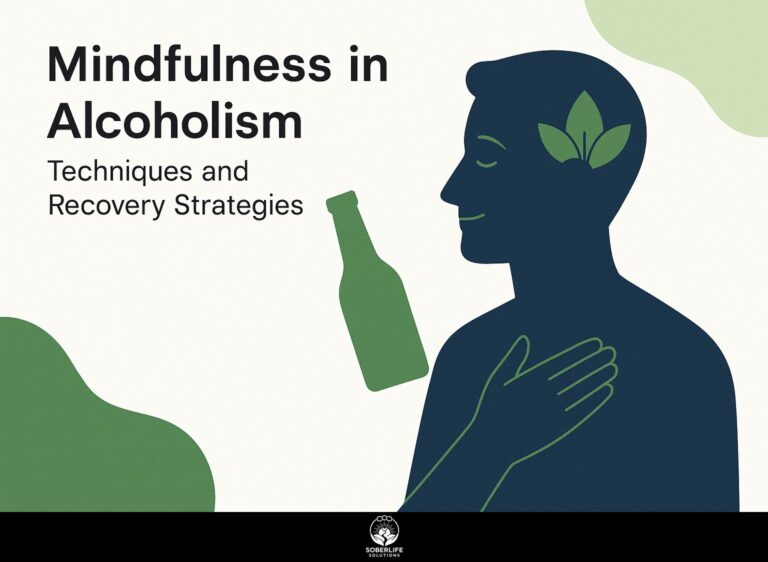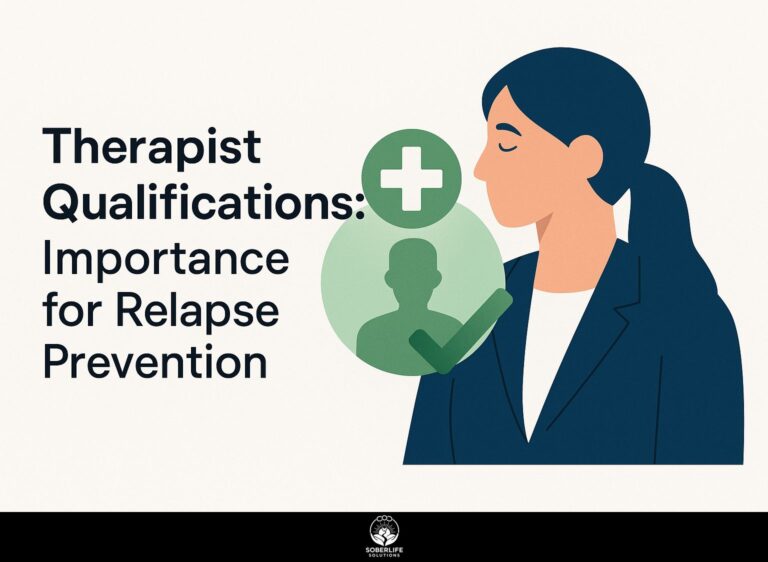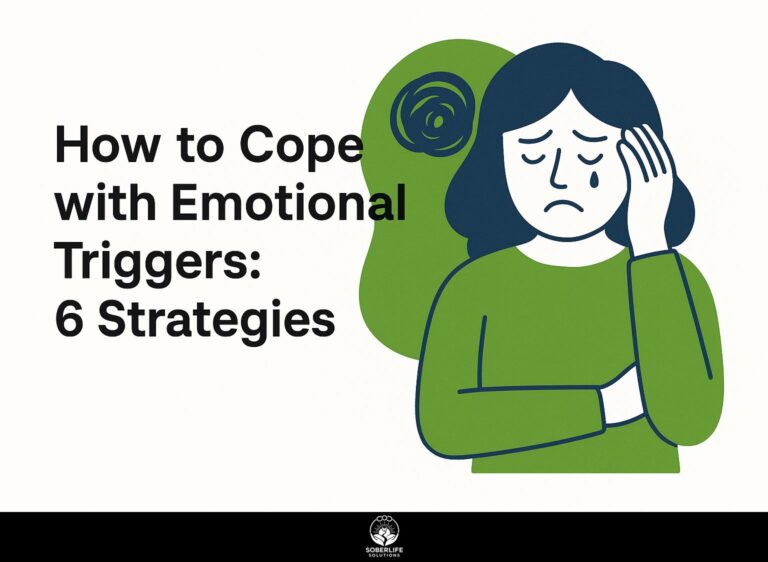Addiction Counselor: Roles, Qualifications, and Impact
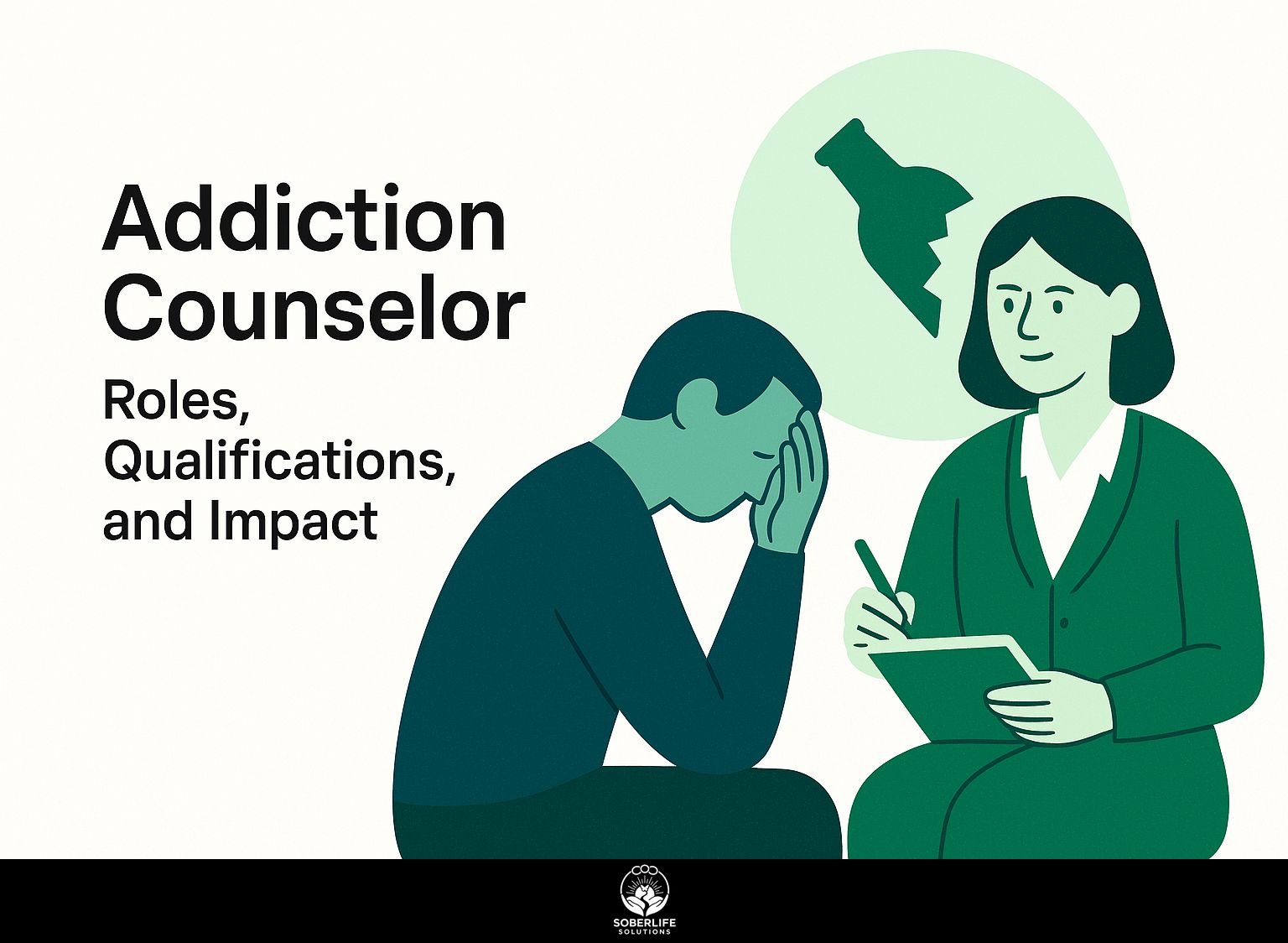
Addiction counselors are important in helping people with substance use problems. They guide individuals toward recovery and better mental health. Institutions like the Cleveland Clinic and Hazelden Betty Ford emphasize the need for experienced substance abuse counselors to create successful treatment plans. This article looks at the duties, skills, and important effects of addiction counselors, explaining how their knowledge changes lives. Join us as we examine addiction counseling and how it helps individuals in their recovery.
Key Takeaways:
Definition and Importance
A counselor helps people dealing with substance abuse by creating treatment plans that fit their unique needs.
These customized plans use reliable techniques, such as cognitive behavioral therapy (CBT) and motivational interviewing, which help achieve lasting change. According to Verywell Mind, CBT is particularly effective in treating alcoholism and drug addiction.
Recent studies show that people who receive treatments specifically designed for them are 50% more likely to remain sober for a long time compared to those in standard programs.
Addiction counseling often includes family involvement to strengthen support networks. Good counselors use tools like the Substance Abuse Subtle Screening Inventory (SASSI) to identify main issues and help clients clearly state their goals, leading to a successful recovery.
Roles of an Addiction Counselor
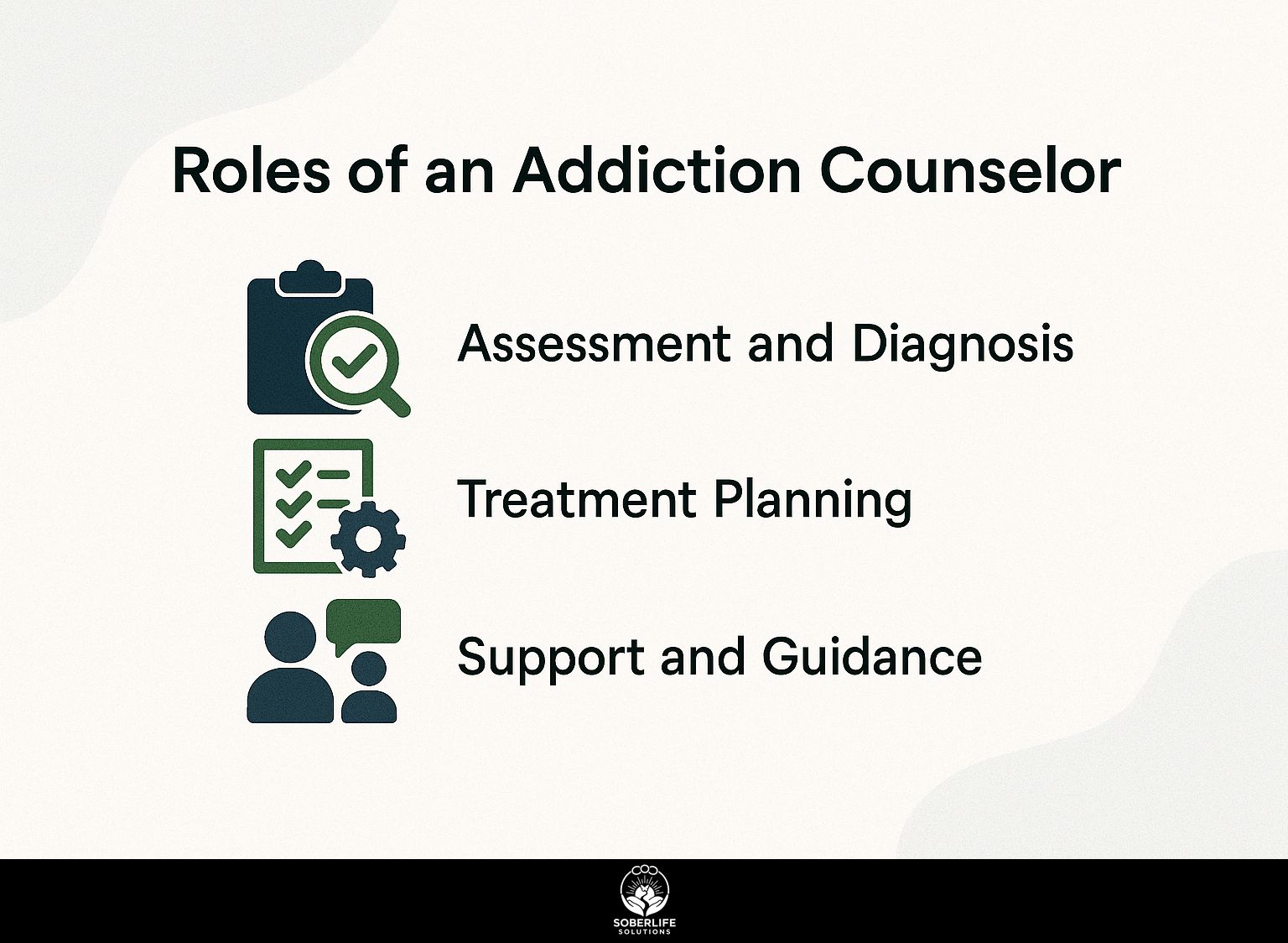
Addiction counselors have many duties, like assessing people and providing ongoing support throughout recovery. This approach aligns with techniques outlined in our analysis of Alcohol Counselors: Credentials and Techniques in Recovery, further enhancing their role in guiding individuals through the complexities of overcoming addiction.
Assessment and Diagnosis
Addiction counselors start recovery by giving detailed evaluations with standardized tools like the Substance Abuse Subtle Screening Inventory (SASSI).
Counselors typically use the SASSI and DSM-5 criteria to determine the seriousness of substance use disorders. They hold detailed interviews, looking at clients’ personal and family backgrounds, causes of issues, and past treatment experiences. This method aligns with the proposed DSM-5 criteria discussed in ScienceDirect, which provides a comprehensive framework for evaluating substance use disorders.
For instance, an intake session may include specific questions about the frequency of substance use and associated impacts on daily life. To be clear, counselors might use self-report questionnaires to easily understand the client’s situation. Additionally, it’s beneficial to consider diverse alcohol counseling techniques that can be tailored to address individual needs.
These tools and methods help design a treatment plan specific to each person, improving the likelihood of recovery.
Treatment Planning
Creating individualized treatment plans is essential for addressing each client’s specific substance use issues and promoting long-term recovery.
Addiction counselors typically start by assessing the client’s history, triggers, and personal goals.
For instance, they may employ cognitive-behavioral therapy (CBT) to help clients identify and change harmful thought patterns. It’s important to set clear and achievable targets, such as reducing substance use by a certain amount within a specific period.
To further support recovery, counselors implement relapse prevention strategies, such as teaching coping skills and creating a support network.
This method deals with present problems and gives clients tools to handle upcoming challenges.
Support and Guidance
Counselors provide ongoing help and advice, aiding clients in dealing with difficulties they encounter during their recovery process.
They offer emotional support by listening carefully and acknowledging the clients’ emotions, creating a secure place for recovery.
Counselors also facilitate group therapy sessions, allowing clients to share experiences and learn from one another, thus building a supportive community.
People can reach out to places like the Cleveland Clinic for full mental health care or Hazelden Betty Ford for recovery support, providing assistance at every step.
Qualifications Required
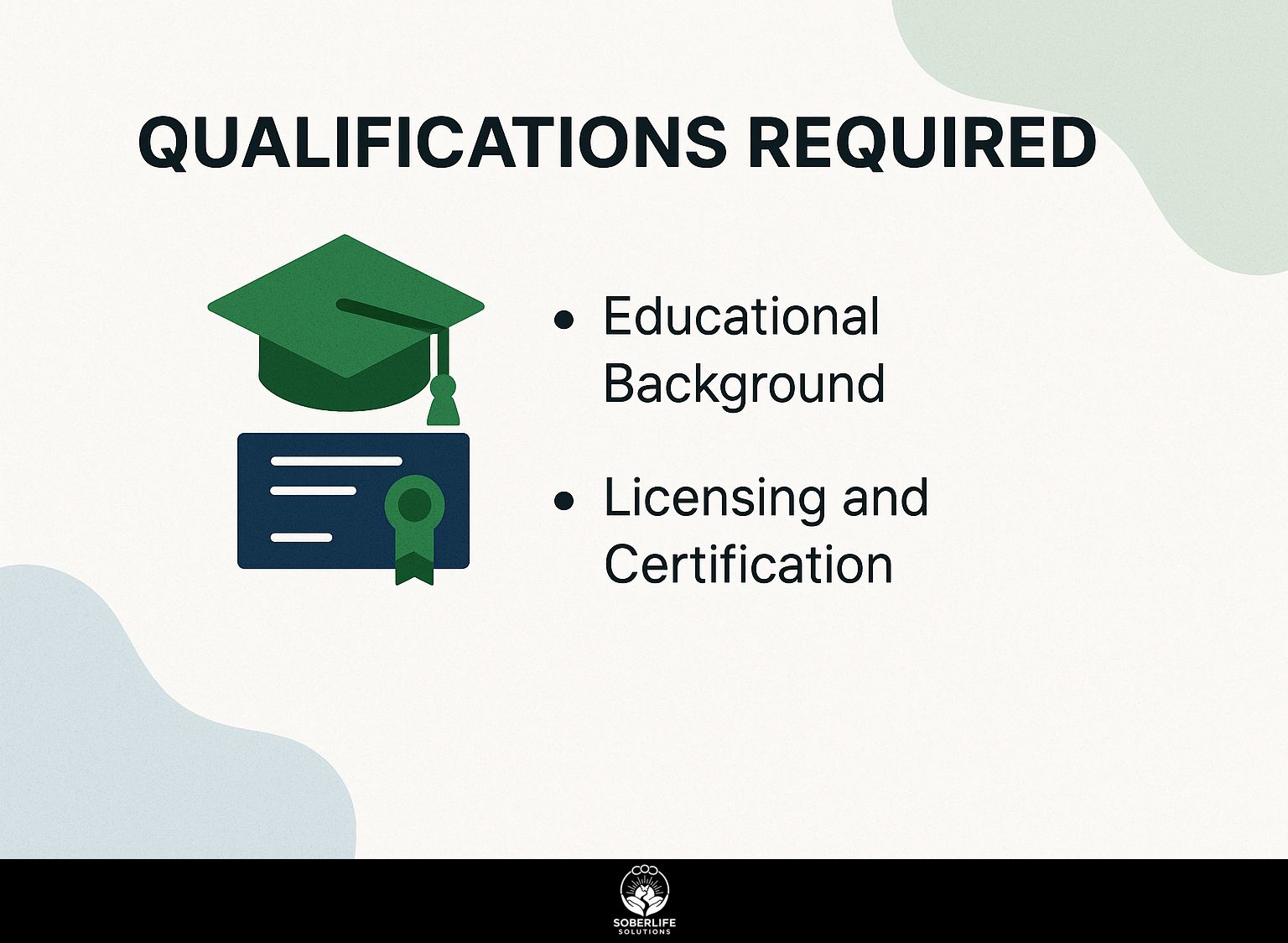
People who want to become addiction counselors need to complete certain education and certification steps to help those with drug and alcohol problems. It’s crucial to understand when to ask for professional help as part of their training, ensuring they can effectively guide individuals through their recovery journeys.
Educational Background
A lot of people study for a Master of Arts in Counseling to qualify as certified addiction counselors in the United States.
Along with this degree, aspiring counselors should complete specialized courses in substance abuse treatment, client assessment, and mental health issues.
Programs often include practical training through internships or supervised clinical hours.
Certification is important; think about getting the National Certified Counselor (NCC) or the Certified Alcohol and Drug Counselor (CADC) credentials. These require passing exams and gaining supervised experience.
To stay informed, joining professional organizations like the National Association for Alcoholism and Drug Abuse Counselors (NAADAC) is beneficial, as they offer resources for continuing education and networking.
Licensing and Certification
To practice legally, addiction counselors must obtain licenses and certifications, typically through recognized organizations such as the National Certification Commission for Addiction Professionals.
The certification process usually includes a number of steps:
- First, candidates must complete a minimum of 270 hours of relevant education.
- Next, accumulating at least 3,000 hours of supervised experience under a qualified supervisor is essential.
- After meeting these requirements, candidates take a full exam to show what they know and can do.
It’s important to stay updated with continuing education for license renewal, which varies by state. Tools like online course platforms (e.g., CE4Less or NAADAC) can help meet these education requirements quickly.
Skills and Competencies
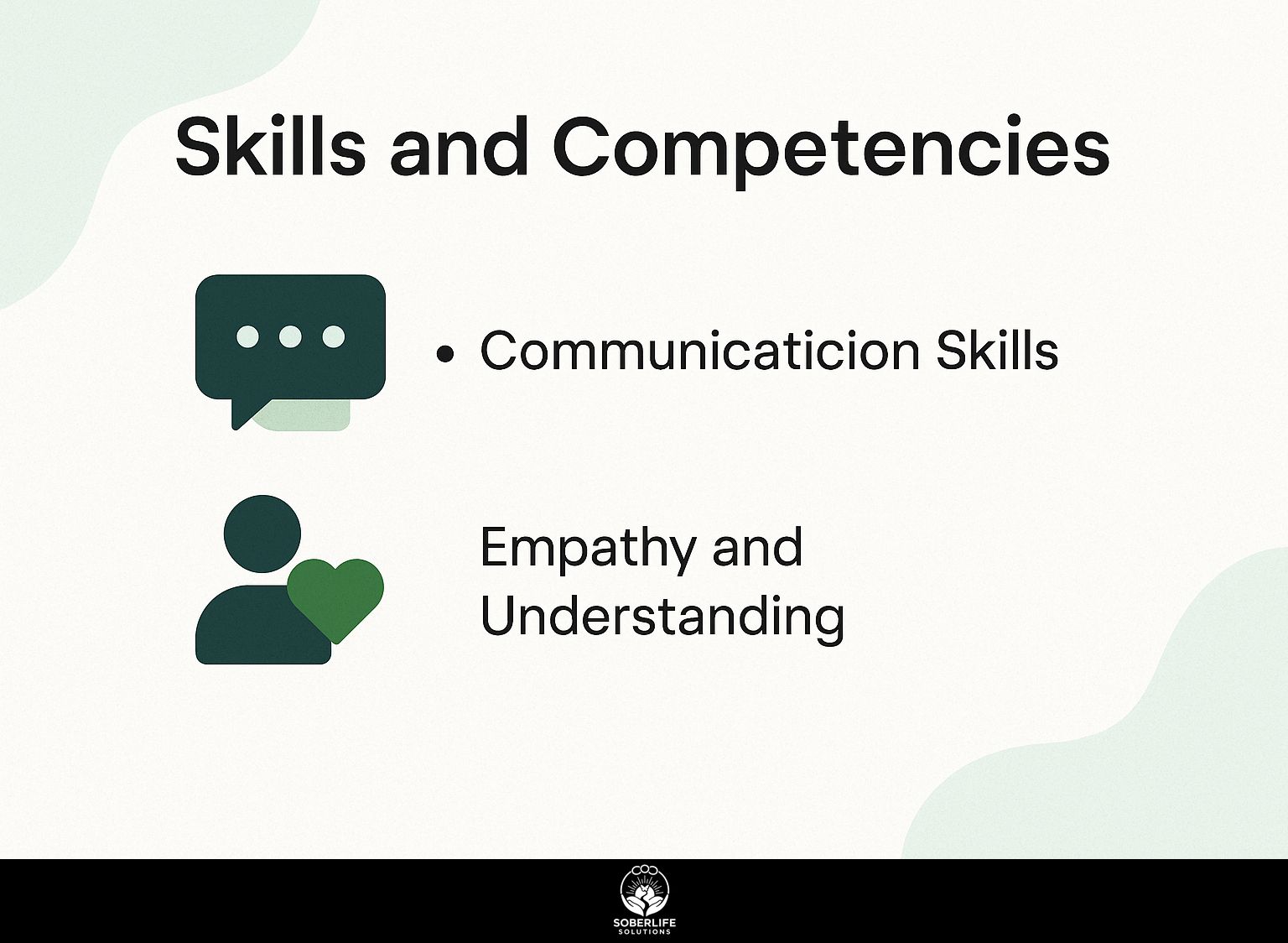
Good addiction counselors have a wide range of skills, including excellent communication and a thorough grasp of their clients’ experiences. Understanding and implementing various alcohol counseling techniques is crucial for effectively addressing and supporting clients through their recovery journey.
Communication Skills
Strong communication skills are essential for addiction counselors, enabling them to build trust and rapport with their clients.
Counselors use different methods to improve communication, like active listening, which involves paying close attention to what the client is saying, and motivational interviewing, which helps clients think about their reasons for wanting to change.
For example, a counselor might ask open-ended questions so clients can share their feelings more openly, creating a supportive setting.
Body language is important; keeping eye contact shows care and involvement.
Learning these skills effectively may take practice, but attending workshops or role-playing scenarios can significantly improve a counselor’s abilities.
Empathy and Understanding
Empathy is very important in addiction counseling because it helps counselors fully grasp their clients’ challenges and strengthen the therapeutic relationship.
Knowing this builds trust, encouraging clients to share their stories and emotions.
For instance, using reflective listening-where counselors paraphrase clients’ sentiments-can validate their emotions. Adopting a non-judgmental stance enables clients to feel safe, promoting open dialogue.
Techniques such as open-ended questions and summarizing key points strengthen the connection. A study showed that counselors who demonstrate empathy report better client engagement and improved recovery outcomes, highlighting empathy’s essential role in effective addiction treatment.
Impact on Clients
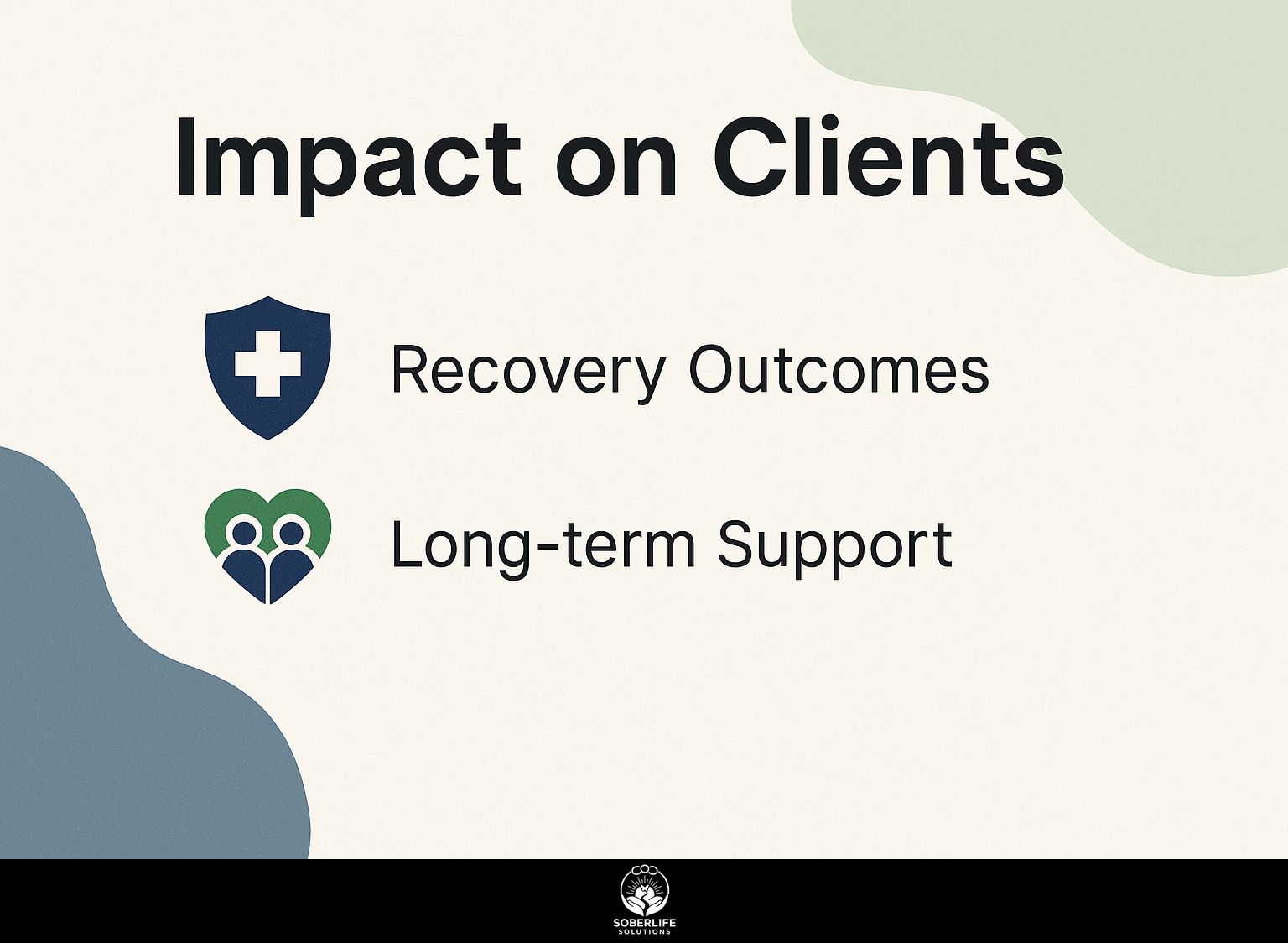
The success of addiction counseling can be seen in different recovery results, showing how important counselors are to the people they help.
Recovery Outcomes
Research shows that clients who engage in structured addiction counseling experience significantly higher recovery outcomes compared to those who do not.
For instance, studies indicate that clients in regular counseling sessions have a 50% higher chance of maintaining sobriety after one year than those who forgo such support.
Tools like Motivational Interviewing help clients stay involved, while Cognitive Behavioral Therapy (CBT) can lower relapse rates by up to 30%.
Programs that offer both counseling and community help keep about 75% of clients, showing the value of using different methods together. For a comprehensive review of these methods, ScienceDirect provides an in-depth analysis, emphasizing their efficacy in addiction recovery.
These statistics show that planned treatment is successful in helping people recover from addiction.
Long-term Support
Ongoing help is important for staying on track with recovery, and counselors often connect clients to local resources and peer support groups.
Groups like Alcoholics Anonymous (AA) or SMART Recovery can provide support. They offer a place where people can talk about their experiences and take responsibility for their behavior.
Utilizing online platforms like In the Rooms can connect individuals with a wider support network. Creating a custom plan to prevent relapse is important; this could include recognizing what triggers a relapse and setting up coping methods, like practicing mindfulness or having regular meetings with a sponsor.
Engaging with recovery coaches can further strengthen these efforts, ensuring ongoing motivation and guidance.
Challenges Faced by Addiction Counselors
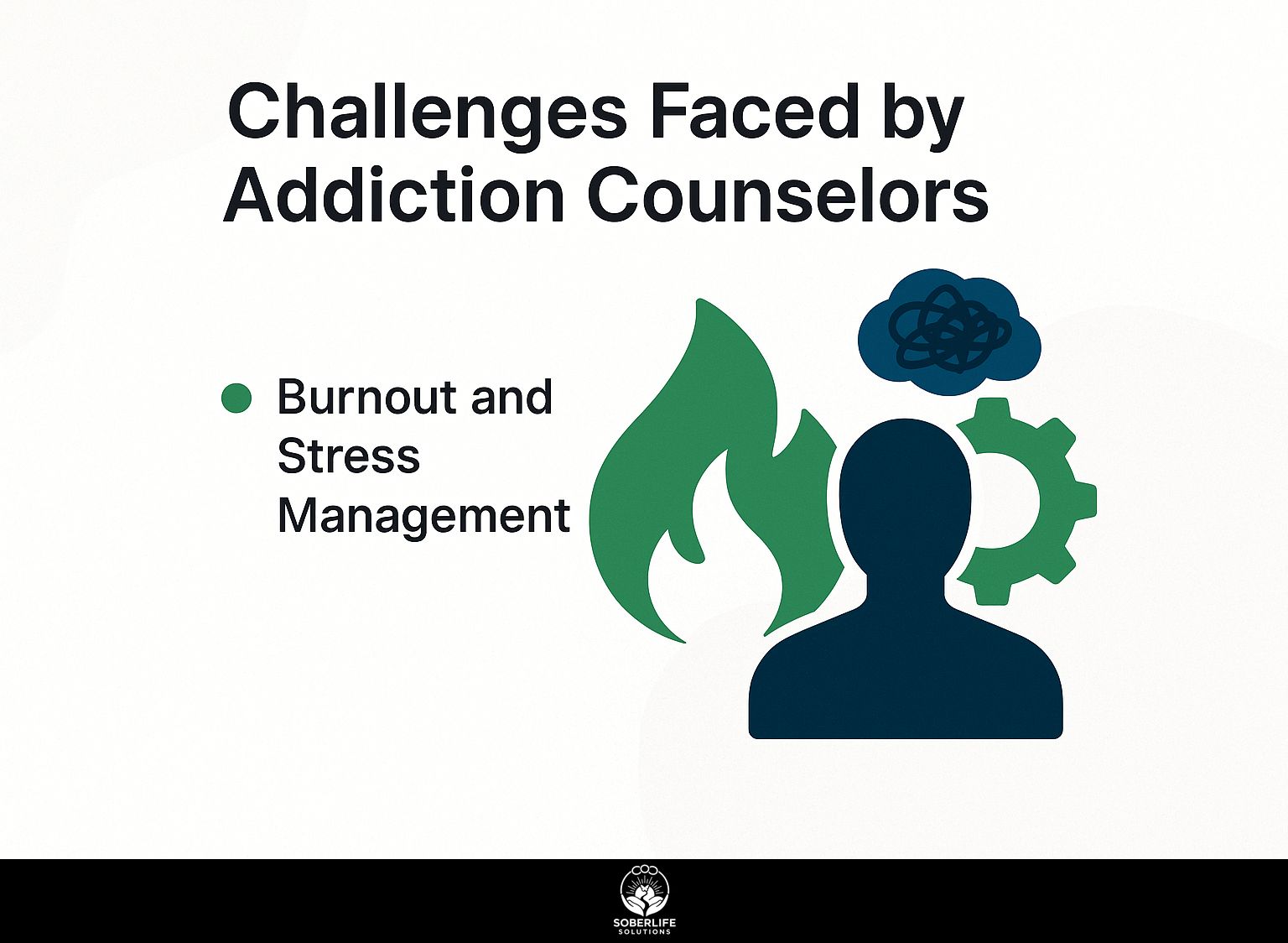
Addiction counselors face many difficulties in their work that can affect how well they do their job and their own mental health. Understanding the techniques used by psychologists can provide valuable insights into overcoming these challenges. One of our most insightful case studies demonstrates this principle with real-world results.
Burnout and Stress Management
Burnout is a significant concern for addiction counselors, with studies indicating that up to 40% experience high levels of emotional exhaustion.
Counselors can try a variety of practical methods to fight burnout.
Regular supervision is essential, providing a place to talk about cases and handle stress. Being part of support groups helps build friendships and offers emotional support.
Prioritizing self-care practices-such as mindfulness exercises, physical activity, and adequate sleep-can restore resilience. For example, setting aside 15 minutes daily for meditation can significantly improve mental clarity and reduce feelings of overwhelm.
By nurturing their own well-being, counselors can better support their clients and maintain their passion for the field.
Frequently Asked Questions
What is the role of an addiction counselor?
An addiction counselor is a trained professional who helps individuals struggling with substance abuse and addiction to overcome their dependency and achieve long-term recovery. They provide support, guidance, and treatment to help clients break free from their addiction and maintain a healthy, sober lifestyle.
What qualifications do addiction counselors have?
Addiction counselors usually have a bachelor’s or master’s degree in psychology, social work, or counseling. They are also required to complete specialized training and certification in addiction counseling, which includes knowledge of the disease of addiction, treatment approaches, and ethical standards.
What is the impact of addiction counselors on clients?
The impact of addiction counselors on clients can be life-changing. They are essential in assisting clients with comprehending their addiction, creating effective coping strategies, and enhancing their general well-being. Addiction counselors also provide ongoing support and guidance to prevent relapse and maintain long-term recovery.
What are the different roles of an addiction counselor?
An addiction counselor might have different jobs, such as evaluating clients, developing treatment plans, offering one-on-one and group therapy, and working with other healthcare providers. They also educate clients and their families on addiction and recovery and may offer support and resources for ongoing recovery.
What qualities make a successful addiction counselor?
A successful addiction counselor should possess empathy, compassion, and strong communication and listening skills. They should also have a non-judgmental attitude and the ability to create a safe and supportive environment for clients to share their struggles. Knowledge, experience, and a passion for helping others are also essential qualities for an addiction counselor.
How can I find an addiction counselor?
You can find an addiction counselor by asking for recommendations from your doctor, therapist, or support group. You can also search for licensed and certified counselors through professional organizations such as the National Association for Addiction Professionals. It is essential to find a counselor who specializes in the type of addiction you are struggling with and who you feel comfortable working with.

